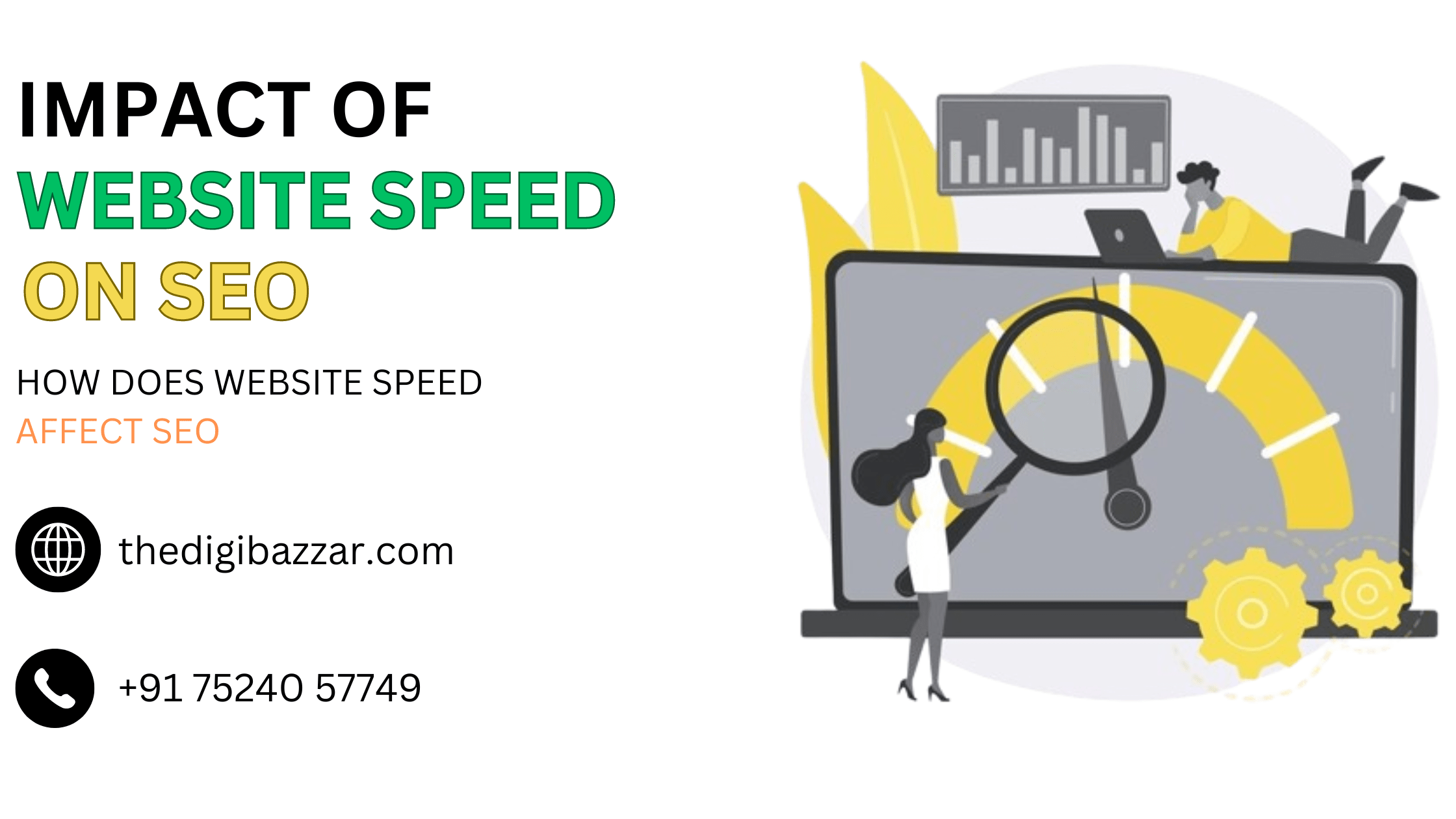The Impact of Website Speed on SEO
What is Website Speed?
Website speed refers to how quickly web pages load and display content to users. Measured in seconds, website speed is influenced by various factors such as server response time, file sizes, image compression, and code efficiency. So let us know how website speed affects SEO.
Importance of Website Speed for SEO
Website speed and SEO are closely linked. Google and other search engines prioritize fast-loading websites because they improve user engagement, reduce bounce rates, and increase dwell time. Slow websites can lead to high bounce rates, negatively affecting SEO. Page speed is a direct ranking factor in Google’s algorithm, impacting both desktop and mobile searches.
Page Speed SEO Impact
Page speed SEO impact is significant. Faster websites allow search engine crawlers to index more pages in less time, improving overall site visibility. A fast-loading site enhances user satisfaction, encouraging longer visits and higher interaction rates. With Google’s mobile-first indexing, page speed on mobile devices is crucial. Slow mobile sites can significantly hurt rankings. Additionally, faster sites lead to higher conversion rates, as users are less likely to abandon slow-loading pages.
Website Load Time and Search Rankings
Website load time and search rankings are directly correlated. Sites that load within 3 seconds are more likely to rank higher in search results. High bounce rates occur when users leave a site quickly due to slow load times, which negatively impacts rankings. Fast websites encourage users to stay longer and explore more pages, positively affecting rankings. In competitive niches, speed can be a differentiator, giving faster sites an edge in search rankings.
How to Improve Website Speed
To improve website speed, you can:
1. Optimize Images: Compress and resize images using tools like TinyPNG or JPEG Optimizer. Use modern formats like WebP for better compression.
2. Leverage Browser Caching: Store static files on users’ devices for faster subsequent visits. Use plugins like W3 Total Cache or WP Super Cache for WordPress sites.
3. Minify CSS, JavaScript, and HTML: Remove unnecessary characters and spaces in your code using tools like Minify or UglifyJS.
4. Use Content Delivery Networks (CDNs): Distribute content across multiple servers worldwide for faster delivery. Services like Cloudflare or Akamai can significantly reduce load times.
5. Optimize Server Response Time: Choose a reliable hosting provider with fast server response times. Reduce server load by optimizing database queries and using efficient coding practices.
6. Reduce Redirects: Minimize the use of redirects as they add extra HTTP requests and delay page loading.
Tools for Measuring and Improving Website Speed
Several tools can help you measure and improve your website speed:
1. PageSpeed Insights: Provides a comprehensive analysis of your page speed and offers suggestions for improving both mobile and desktop performance.
2. GTmetrix: Offers detailed reports on page performance with actionable recommendations and provides a waterfall breakdown of all elements on your page.
3. Pingdom: Monitors website performance and provides insights on speed and uptime, allowing testing from multiple locations around the world.
4. WebPageTest: Provides in-depth testing of website speed from different global locations with detailed metrics and visualizations for performance optimization.
5. Lighthouse: An open-source tool from Google for auditing and improving web page quality, analyzing performance, accessibility, best practices, SEO, and more.
Conclusion
Website speed and SEO are intrinsically linked, directly affecting user experience and search engine rankings. By understanding the page speed SEO impact, you can implement strategies to enhance your website’s performance. Regular monitoring and optimization of website load time and search rankings are essential to maintain and improve SEO performance. Utilize the recommended tools and best practices to ensure your website loads quickly, providing a better experience for users and achieving higher visibility in search results.
Read Our Other Blog “Social Media Marketing Benefits“
